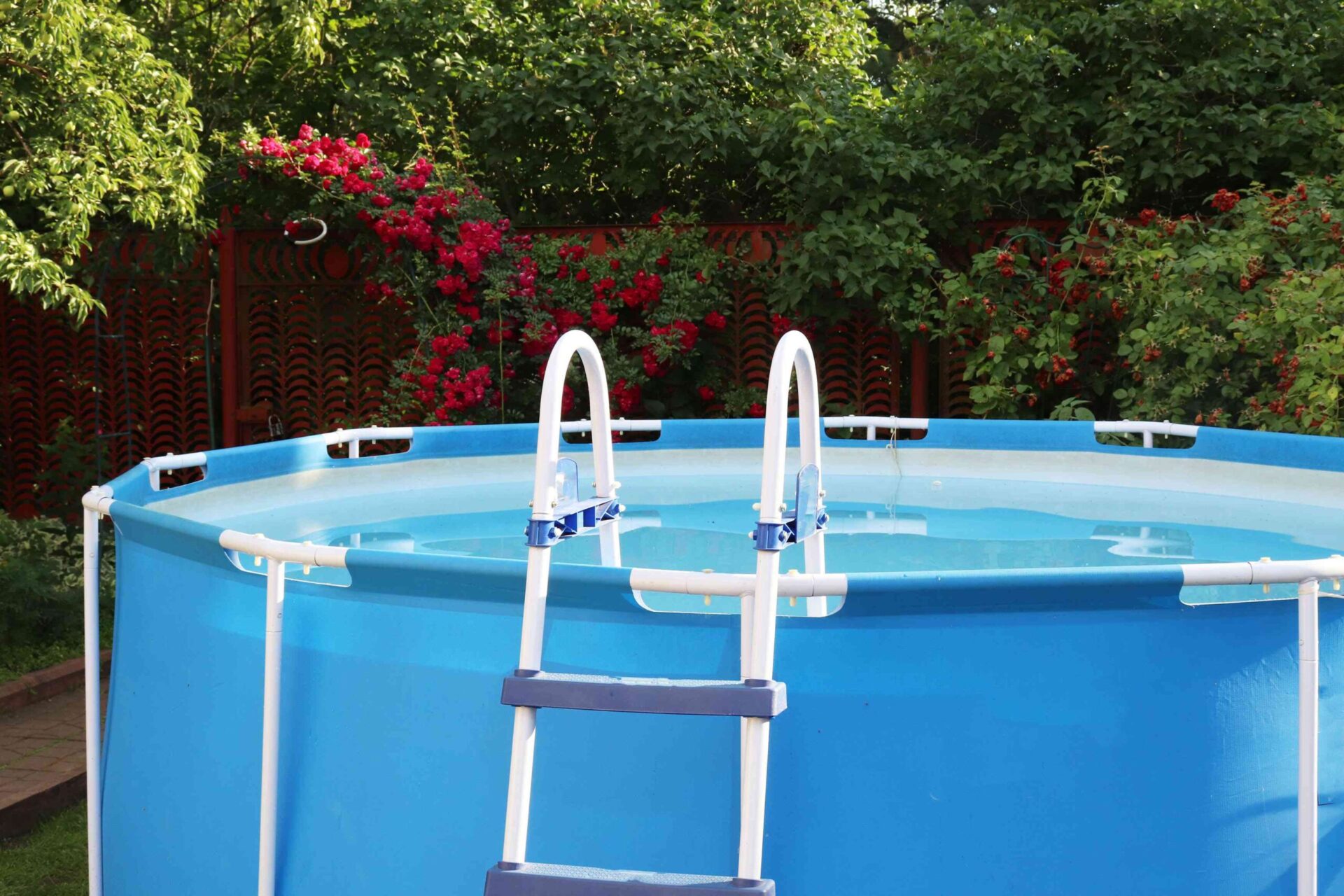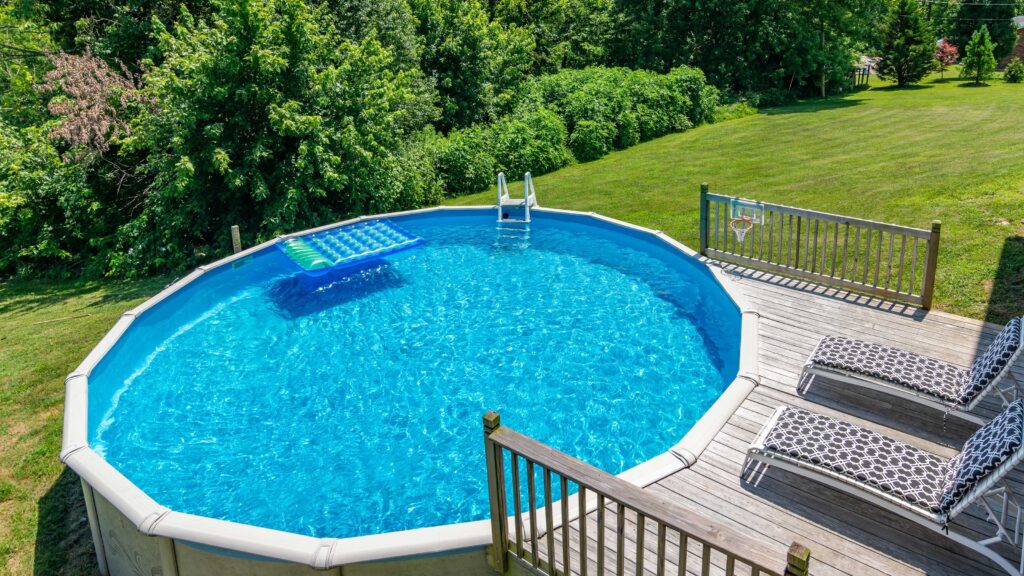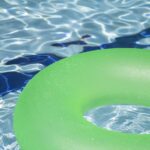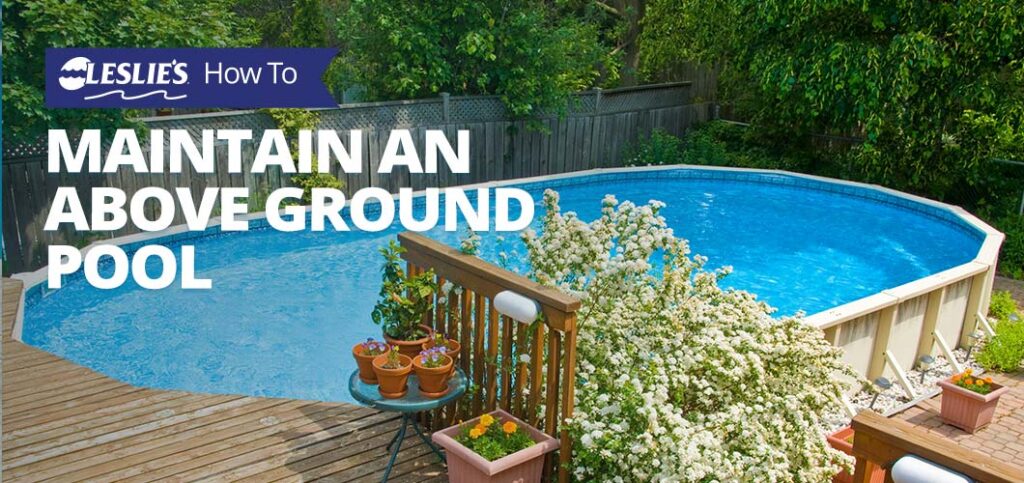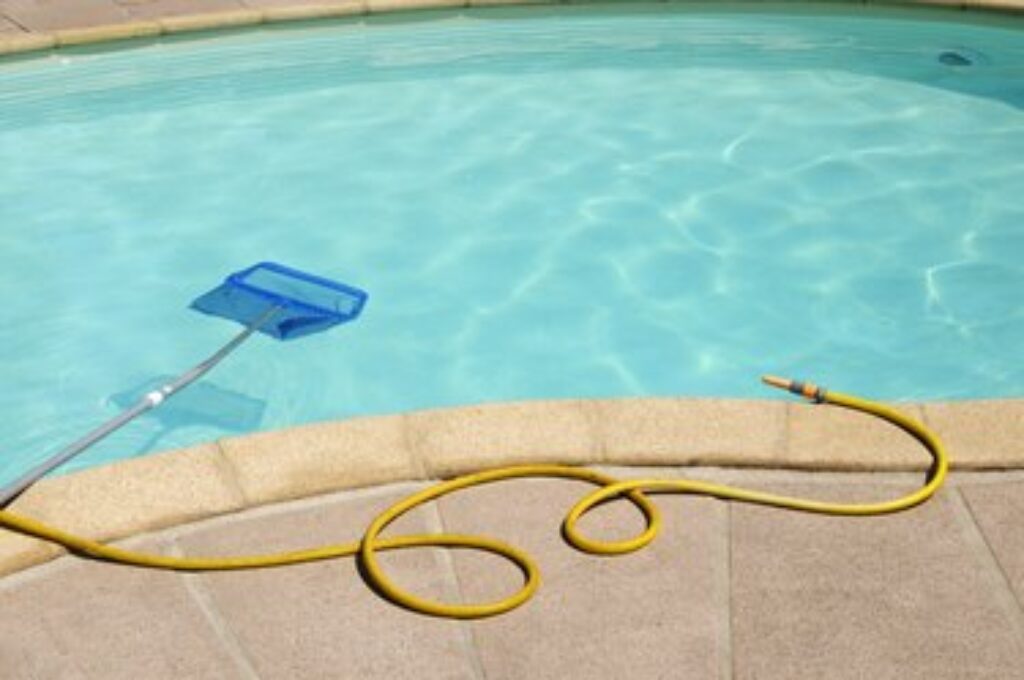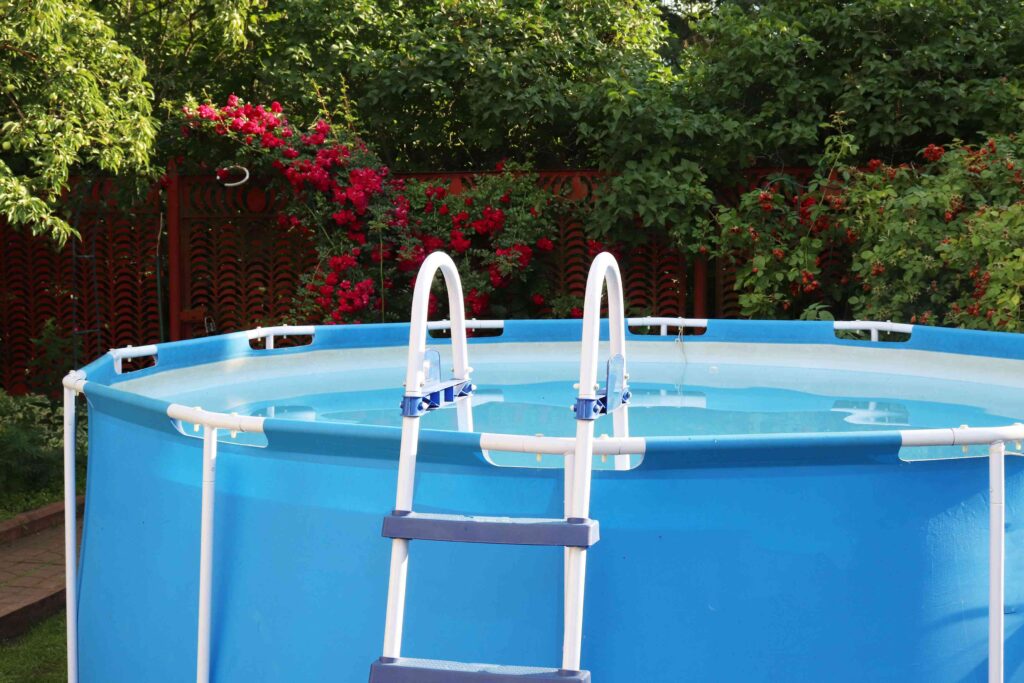Maintaining your above ground pool is crucial for preserving its longevity and ensuring a safe and enjoyable swimming experience for years to come. In this article, we will share valuable long-term maintenance tips that will help you protect your investment and keep your above ground pool in top-notch condition. From regular cleaning and water balancing to winterizing techniques, these tips will guide you through the necessary steps to maintain your pool and enhance its durability. So, let’s dive into the world of pool maintenance and discover how to extend the lifespan of your above ground pool!
This image is property of cdn.mos.cms.futurecdn.net.
1. Cleaning the Pool
Keeping your above ground pool clean is essential for both its aesthetic appeal and the health and safety of swimmers. Regular cleaning not only removes debris but also prevents the buildup of dirt, algae, and other contaminants. Follow these steps to maintain a sparkling clean pool.
1.1 Skimming the Surface
Use a skimmer net or leaf rake to remove leaves, bugs, and other floating debris from the surface of your pool. Skimming the surface is a quick and easy task that should be done daily or as needed. By doing so, you prevent the accumulation of debris, which can clog your pool filter and lead to more significant issues.
1.2 Vacuuming the Pool
In addition to skimming the surface, regularly vacuuming your pool helps maintain its cleanliness. Whether you opt for a manual pool vacuum or an automatic one, make sure to cover the entire pool floor to remove dirt, dust, and other particles that settle there. Vacuuming should be done at least once a week to keep your pool water crystal clear.
1.3 Brushing the Pool Walls
To prevent the buildup of algae and other stubborn stains, it’s crucial to brush the pool walls regularly. Use a pool brush with stiff bristles to scrub away any algae, dirt, or debris clinging to the walls and steps of your pool. Focus on hard-to-reach areas and corners where algae growth is more likely. Brushing the pool walls every few weeks helps maintain a smooth and clean surface.
1.4 Cleaning the Pool Filter
A clean and efficient pool filter is essential for clear and healthy water. Depending on the type of filter you have (e.g., sand, cartridge, or diatomaceous earth), you’ll need to clean or replace it regularly. Follow the manufacturer’s instructions to clean the filter, ensuring maximum filtration. A clogged or dirty filter can hinder water flow and lead to cloudy or contaminated water.
1.5 Removing Debris and Leaves
In addition to skimming the surface, it’s essential to remove any leaves or debris that may have sunk to the bottom of your pool. Use a leaf rake or a pool net to manually remove large debris from the pool floor. Regularly cleaning the pool bottom prevents the accumulation of leaves, which can stain the pool liner and impact water quality.
2. Balancing Chemical Levels
Maintaining proper chemical levels in your above ground pool is crucial for safe and enjoyable swimming. Following these steps will ensure your pool water is balanced and free from harmful contaminants.
2.1 Testing the Water
Regularly testing your pool water is essential to determine its chemical makeup and adjust accordingly. Use a reliable water test kit to measure the pH, chlorine, alkalinity, and calcium hardness levels. Testing should be done at least once a week, but it’s a good idea to check after heavy rain or pool usage to ensure proper balance.
2.2 Adjusting pH Levels
Maintaining the correct pH level is vital for comfortable swimming and optimal chlorine effectiveness. The ideal pH balance for pool water is between 7.4 and 7.6. Use pool chemicals, such as pH increasers or pH decreasers, to adjust the pH levels as needed. Keep in mind that improper pH levels can lead to eye and skin irritation and can also affect the lifespan of your pool equipment.
2.3 Maintaining Proper Chlorine Levels
Chlorine is crucial for sanitizing your pool and keeping it free from harmful bacteria and microorganisms. Aim for a chlorine level of 1-3 parts per million (ppm) in your pool. Regularly adding chlorine tablets or liquid sanitizer to your pool water helps maintain proper levels. Remember to follow the manufacturer’s instructions and take precautions when handling pool chemicals.
2.4 Monitoring Alkalinity and Calcium Hardness
Alkalinity and calcium hardness levels also play a vital role in maintaining balanced pool water. Alkalinity acts as a buffer, preventing drastic pH fluctuations, while calcium hardness helps prevent corrosion of pool equipment. Test the alkalinity and calcium hardness levels regularly and adjust as necessary using specific pool chemicals recommended for these purposes.
2.5 Adding Stabilizer
Pool stabilizer, also known as cyanuric acid, helps reduce chlorine loss caused by ultraviolet (UV) rays from the sun. Regularly adding stabilizer to your pool water helps maintain chlorine effectiveness and prevent excessive chlorine consumption. Aim for a stabilizer level between 30-50 ppm. Be cautious not to exceed 100 ppm, as high levels can hinder chlorine’s ability to sanitize the pool.
3. Winterizing the Pool
Winterizing your above ground pool is crucial to protect it from freezing temperatures and harsh weather conditions. Proper winterization ensures your pool remains in good condition and is ready for use when the warmer months return.
3.1 Cleaning and Removing Debris
Before winterizing your pool, thoroughly clean and remove any debris or leaves. Skim the surface, vacuum the pool, and brush the walls to ensure no dirt or debris is left behind. Pay special attention to the pool filter, ensuring it’s free from debris and clean.
3.2 Lowering Water Level
To prevent freeze damage, lower the water level in your pool below the skimmer level. Use a submersible pump or a hose to drain the excess water. It’s important to balance draining enough water to prevent ice expansion while leaving enough water to keep the pool structure stable.
3.3 Adding Winterizing Chemicals
Add winterizing chemicals to your pool water to prevent algae growth and inhibit the growth of bacteria and other contaminants during the winter months. Follow the manufacturer’s instructions for specific chemical dosages and procedures. After adding the chemicals, ensure proper circulation to distribute them evenly throughout the pool.
3.4 Covering the Pool
Invest in a durable and secure pool cover to protect your pool from debris and harsh weather conditions during the winter. Ensure the cover fits tightly and is securely fastened to prevent any gaps where leaves or pests could enter. A properly covered pool also helps retain any added winterizing chemicals and prevents water evaporation.
3.5 Regular Inspections During Winter
Even during the winter months, it’s essential to perform regular inspections of your covered pool. Check for any signs of damage, such as tears in the pool cover or debris accumulating on top. This allows you to address any issues promptly and ensure your pool remains protected throughout the winter season.
4. Regular Maintenance Tasks
Aside from the specific cleaning and chemical balancing tasks mentioned above, several regular maintenance tasks contribute to the longevity and optimal performance of your above ground pool.
4.1 Monitoring Water Level
Regularly check the water level in your pool to ensure it stays within the recommended range. If the water level is too low, the pool pump may run dry and become damaged. Conversely, if the water level is too high, it can impair skimming efficiency and prevent proper water circulation.
4.2 Cleaning Skimmer and Pump Baskets
The skimmer and pump baskets collect debris and prevent it from clogging the pool’s circulation system. To maintain proper water flow, clean these baskets regularly to remove leaves, bugs, hair, and other debris. Remove any collected debris, rinse the baskets with water, and ensure they are reinstalled correctly.
4.3 Checking and Lubricating O-rings
O-rings are found in various pool equipment, including pumps, filters, and valves, and provide a watertight seal. Regularly inspect these o-rings for signs of damage or wear, such as cracks or dryness. Apply a silicone-based lubricant to keep the o-rings in good condition and prevent leaks.
4.4 Inspecting and Cleaning Pool Liner
Inspect the pool liner regularly for any signs of wear, tears, or damage. If you notice any issues, promptly repair or replace the liner to prevent leaks or further damage. Regularly clean the liner using a pool brush or mild detergent to remove dirt, stains, and algae growth. Avoid using abrasive cleaners or brushes that may damage the liner.
4.5 Maintaining Proper Water Circulation
Proper water circulation is crucial for the overall health and cleanliness of your pool. Check and clean the pool pump and filter regularly to ensure efficient water flow. Remove any debris trapped in the skimmer or pump system to prevent clogs. Additionally, consider running the pool pump for the recommended duration to maintain optimal water circulation.
This image is property of blog.lesliespool.com.
5. Protecting the Pool Structure
To ensure your above ground pool remains structurally sound and visually appealing, it’s essential to address any potential issues with the pool’s structure.
5.1 Identifying and Repairing Leaks
Regularly inspect your pool for any signs of leaks, such as water loss or moisture accumulation. If you suspect a leak, use a dye testing kit to pinpoint its location accurately. Promptly repair any leaks to avoid further damage to the pool structure or surrounding areas.
5.2 Patching or Replacing Pool Liner
If your pool liner becomes damaged or begins to deteriorate, timely repair or replacement is necessary. Small tears or holes can often be patched using a pool liner repair kit, while more significant damage may require replacing the entire liner. Ensure proper installation and alignment of the new liner to maintain the pool’s integrity.
5.3 Fixing or Replacing Damaged Pool Walls
The walls of your above ground pool are susceptible to damage from weather conditions, shifting soil, or general wear and tear. Regularly inspect the pool walls for any signs of damage, such as rust, corrosion, or bending. Small patches can be used to address minor issues, while more severe damage may require replacing the affected section or even the entire pool wall.
5.4 Addressing Rust or Corrosion
Rust and corrosion can significantly impact the lifespan and structural integrity of your above ground pool. Regularly inspect metal components, such as the pool frame, ladder, or handrails, for any signs of rust or corrosion. Address these issues promptly by cleaning, sanding, and applying a rust-resistant paint or primer to prevent further deterioration.
5.5 Preventing Sun Damage
The sun’s powerful UV rays can cause fading and deterioration of your pool’s surface and equipment over time. To prevent sun damage, consider investing in a pool cover or UV-resistant pool liner. Additionally, use a pool cover or shade structure when your pool is not in use to protect it from prolonged sun exposure.
6. Addressing Potential Hazards
Ensuring the safety of swimmers is paramount when it comes to pool maintenance. Pay attention to potential hazards and take preventive measures to create a safe and enjoyable pool environment.
6.1 Proper Chemical Storage and Handling
Pool chemicals can be hazardous if not stored and handled correctly. Keep all pool chemicals in a cool, dry, and well-ventilated area away from children and pets. Follow the manufacturer’s instructions when handling and dosing pool chemicals to prevent accidents, chemical burns, or other safety mishaps.
6.2 Installing Pool Safety Measures
To prevent accidents and ensure the safety of swimmers, install appropriate safety measures. Install a pool fence, gate, or barrier to restrict access to the pool area. Consider installing a pool alarm or safety cover to further enhance safety precautions. Regularly inspect and maintain these safety measures to ensure they are in good working condition.
6.3 Preventing Algae Growth
Algae growth not only affects the appearance of your pool but can also pose health risks to swimmers. To prevent algae growth, maintain proper water circulation and chemical balance in your pool. Regularly brush the pool walls, skimmer, and steps to remove algae spores. Add algaecide to your pool water as a preventive measure, especially during periods of warmer weather or increased pool usage.
6.4 Dealing with Pool Stains
Stains on the pool surface can be unsightly and difficult to remove. Identify the type of stain (e.g., rust, mineral, or organic) to determine the appropriate cleaning method. Use pool stain removers or specific cleaning agents recommended for your pool surface. Promptly address stains to prevent them from becoming more challenging to remove over time.
6.5 Managing Pool Water Temperature
Maintaining an appropriate pool water temperature contributes to swimmers’ comfort and enjoyment. Use a pool heater or heat pump to regulate the water temperature according to your preferences. Regularly monitor and adjust the temperature to ensure it remains within a comfortable range for swimmers.
This image is property of img.ehowcdn.com.
7. Maintaining Pool Equipment
Regular maintenance of your pool equipment is crucial to ensure proper functioning and extend its lifespan.
7.1 Regularly Cleaning and Inspecting the Pump
The pool pump is responsible for circulating and filtering the water, making it essential to maintain its efficiency. Regularly clean the pool pump and remove any debris or clogs obstructing its operation. Inspect the pump for any signs of damage or wear, such as leaking seals or unusual noises. Address any issues promptly or seek professional assistance if needed.
7.2 Checking and Maintaining the Filter
The pool filter removes impurities and debris from the water, requiring regular attention to ensure optimal filtration. Monitor the pressure gauge on the filter and backwash or clean the filter media when the pressure rises beyond the recommended range. Cartridge filters may need periodic cleaning or replacement, while sand filters may require occasional backwashing and sand replacement. Refer to the filter manufacturer’s instructions for specific maintenance guidelines.
7.3 Lubricating Valves and O-rings
Regularly check the valves and o-rings in your pool equipment to ensure they are properly lubricated for smooth operation and watertight seals. Apply a silicone-based lubricant to the valve handles and o-rings, following the manufacturer’s recommendations. Lubricating critical components helps prevent leaks, minimize wear, and maintain the equipment’s efficiency.
7.4 Inspecting and Repairing Pool Lights
If your above ground pool is equipped with underwater lights, inspect them regularly to ensure they are functioning correctly and safely. Check for any signs of damage, such as broken lenses or corroded connections. Replace faulty bulbs or damaged components promptly to maintain proper illumination and avoid electrical hazards.
7.5 Monitoring and Servicing Heaters
If you have a pool heater, it’s essential to monitor its performance and conduct regular servicing. Inspect the heater for any signs of damage or malfunction, and address any issues immediately. Schedule professional maintenance and cleaning of the heater, as recommended by the manufacturer, to ensure its efficiency and prolong its lifespan.
8. Preventing and Treating Pool Water Issues
Maintaining optimal water quality is vital for a clean and inviting swimming pool. Addressing common pool water issues promptly helps prevent more significant problems from developing.
8.1 Dealing with Cloudy Water
Cloudy water is often a sign of poor filtration, improper chemical balance, or the presence of suspended particles. Check and clean the pool filter and backwash if necessary. Test and adjust the water chemistry, ensuring proper pH, chlorine, and alkalinity levels. If persistent cloudiness occurs, use a pool clarifier or flocculant to help clear the water.
8.2 Removing and Preventing Algae
Algae growth can turn your pool water green, making it unappealing for swimmers. To remove algae, shock the pool with a high dose of chlorine to kill existing algae spores. Brush the pool walls and vacuum the pool floor to remove algae debris. Maintain proper water circulation and chemical levels to prevent future algae growth.
8.3 Managing and Preventing Scale Buildup
Scale buildup, usually caused by high calcium hardness levels or improper water balance, can lead to unsightly deposits on pool surfaces and equipment. Regularly monitor and maintain appropriate calcium hardness levels in your pool. If scale buildup occurs, treat it with specialized scale removers or consult a pool professional for assistance.
8.4 Avoiding and Treating Stains
Stains on pool surfaces can result from various sources, such as leaves, metals, or minerals. Regularly clean and brush the pool surfaces to prevent stains from setting in. For stubborn stains, use specific stain removers or consult a pool professional for professional cleaning or refinishing services.
8.5 Addressing pH Imbalance
Maintaining a proper pH balance is critical for comfortable swimming and efficient chemical disinfection. Test the pool water regularly and adjust the pH levels as needed using appropriate chemicals. Imbalanced pH can lead to eye and skin irritation and can impact the effectiveness of other pool chemicals.
This image is property of www.thespruce.com.
9. Upgrading and Renovating the Pool
Over time, you may consider upgrading or renovating your above ground pool to enhance its functionality and aesthetics. These upgrades can help increase the value of your investment and provide an improved swimming experience.
9.1 Assessing Potential Pool Upgrades
Evaluate your pool’s current condition and identify any potential upgrades or modifications that could improve its overall performance and appeal. Consider features such as automatic pool covers, energy-efficient equipment, or advanced filtration systems. Research and consult with pool professionals to determine the feasibility and cost-effectiveness of these upgrades.
9.2 Considering Pool Addition or Expansion
If you have the space and resources, consider expanding your above ground pool or adding additional features, such as a spa or hot tub. Assess your property’s layout and consult with pool designers or contractors to determine the best expansion options for your specific needs and budget.
9.3 Upgrading Pool Filtration System
Upgrading your pool’s filtration system can significantly improve water quality and minimize maintenance requirements. Explore options such as high-efficiency filters, ozone or UV sterilization systems, and automatic chemical feeders. Upgrading your filtration system can provide more efficient water circulation, easier maintenance, and safer swimming conditions.
9.4 Enhancing Pool Lighting
Enhancing pool lighting not only adds ambiance but also improves safety for nighttime swimming. Consider upgrading to energy-efficient LED lights or installing color-changing lights to create different moods. Consult with pool lighting experts or contractors to design a lighting system that best suits your preferences and enhances your pool’s aesthetics.
9.5 Redesigning Pool Aesthetics
If you’re looking to refresh the look and feel of your pool, consider redesigning the pool’s aesthetics. This might involve replacing the pool liner, adding decorative tiles, or installing deck patterns or materials. Work with pool designers or contractors to explore different design options that align with your style preferences and budget.
10. Professional Help and Maintenance Services
While regular DIY maintenance is essential, seeking professional assistance can provide peace of mind and ensure that your above ground pool remains in optimal condition.
10.1 Understanding When to Seek Professional Assistance
Certain pool maintenance tasks may require specialized knowledge or expertise. Know when to seek professional help, whether it’s for complex repairs, equipment installation, or water chemistry adjustments that require professional testing and analysis.
10.2 Hiring Pool Maintenance and Cleaning Services
If you’re short on time or prefer to leave pool maintenance to the experts, consider hiring a professional pool maintenance service. These professionals have the necessary equipment, experience, and knowledge to handle routine cleaning, chemical balancing, and equipment maintenance. Regular maintenance services can help prolong the lifespan of your pool and ensure it’s always ready for use.
10.3 Consulting Pool Repair and Renovation Experts
When faced with major pool repairs or renovation projects, consulting pool repair and renovation experts is crucial. These professionals can assess the extent of the damage, provide accurate cost estimates, and recommend the best course of action. Hiring experts ensures that repairs are done correctly and potentially saves you from costly mistakes.
10.4 Scheduling Regular Professional Inspections
Consider scheduling periodic professional inspections of your above ground pool, even if you regularly perform maintenance tasks yourself. Professional inspectors can identify underlying issues that may go unnoticed and recommend preventative measures. These inspections help catch potential problems early, allowing for timely repairs and minimizing the risk of more extensive damage.
10.5 Seeking Expert Advice on Pool Upkeep
If you have specific concerns or questions related to your above ground pool maintenance, seek expert advice from pool professionals or reputable resources. From water chemistry adjustments to equipment troubleshooting, consulting experts provides accurate and reliable information to help you maintain your pool effectively.
Preserving Your Investment: Long-Term Maintenance Tips for Above Ground Pools
Maintaining your above ground pool requires consistent effort and attention, but the rewards are well worth it. By following the comprehensive guide above, you’ll ensure that your pool remains clean, safe, and functional for years to come. Remember to combine regular cleaning, proper chemical balance, and periodic upgrades to preserve your investment and enjoy endless hours of swimming and relaxation in your beautiful above ground pool.
